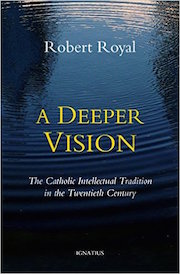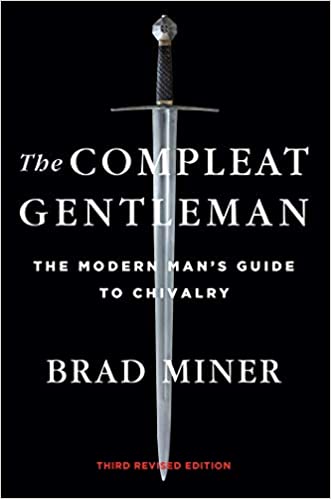The proposition I have stated so boldly in my headline has enjoyed some support among (not necessarily Christian) amateur and professional psychologists. But unless they are Christian, they are unlikely to see the implications.
That “love” in our current profane culture is misunderstood, or we might rather say “misdefined,” I assert to begin with. We have come to understand it as a development of sexual lust, or by comparison to our esteem for kittens and puppies. Babies, when they are lucky, may also be loved, and perhaps a little differently than a “hot” girlfriend, or a charismatic boy. But still, best avoided.
A baby can be special, because his (not “its”) empathy is demanded, and is difficult. He is needy in ways that would make an adult uncool. Our empathetic affection will run dry when the babe is crying – unless nature has provided you as a parent. The child’s non-parent, living with the mother, is a potential danger to it.
We begin to see that empathy is the flip side of narcissism. Like narcissism, as traditionally understood, we may think we love someone that we do not even know. It is a transient passion, perhaps best represented by the Hallmark card.
Love, it has been observed, in literature and non-pornographic art, is more closely allied with marriage than with sex. That is why a couple may continue to be “in love” when they are old and wrinkly; and too, why old friends continue to be faithful.
Conversely, the absence of love easily accounts for the divorce rate having gone through the roof, since “love” became something that happens to you, as it does in commercial songs. And it has also been broadened, so that the modern person may get married to something incapable of love, such as a bridge, or a pervert.
Something similar is happening within modern friendship.
That love can be invented by the humans is a fact of nature; one that was implicitly explained by Christ, or by Paul in his instruction to men. For he tells husbands to love their wives, as if they would not automatically do this. It takes work, just as it takes work to love one’s neighbor. (Ask any husband, or neighbor.)
But it is like any other invention. Once it is assembled, it takes care of itself, as if it were a good and reliable machine. The comparison is not entirely inapt, when we consider the breadth of persons we are commanded to love, within the Christian dispensation.
We must know them, to love them; they must have “being.” One is even commanded to love Hamas terrorists (or “Palestinians” as they call themselves), for God must surely love them, and know them, well. We cannot imagine Him loving from ignorance.
For God is the universal lover, and God knows, everything.

Empathy must be a choice. It is to imagine oneself in the position of another, suffering the same hurts and enjoying the same pleasures – without being that other person. That’s why empathy can work as a strategy.
A policeman shows great empathy when he is able to identify the criminal by the circumstances of the crime. He reads this “signature.”
Similarly, in war, the general must have enough empathy to understand his enemy’s capacities. By imagining himself in the same position, he can guess what his enemy will do, and intercept the attack, or close up his own exposed defenses. Wars have been won with ingenious empathy.
For the purposes of strategy and tactics, however, the general need not love what he sees. Indeed he is more likely to loathe the enemy, as the policeman the criminal, though of course the wise man keeps his feelings to himself.
The same principle governs the art of seduction, which is practiced by both sexes (or as one says today, “all sexes”) to the end of controlling the other. One might treat one’s “love” as an enemy to be conquered, for sex or perhaps some other purpose. A prostitute will be less used.
A show of empathy can be quite helpful in effecting a seduction, even when it is shown in a rough or nasty way, as it often is, in low life. The person who is “empathized with” is not loved, but manipulated. The object who thinks that he is loved, is only being defeated.
That is why, in our profane culture, marriages are often founded on the misgovernment of lust. How could we expect them to survive, once the persons become old and ugly? Or sooner, once they have become tiresomely acquainted with each other?
For marriage is, strictly speaking, the only human creative act. We have come up with inventions to cancel this creativity (the pill, &c), but we cannot replace it with another act that is actually creative.
The lovers, and the created person, have “being,” as the philosophers tell us. The profoundest work of art has only an imitation of being, and imitation of a soul. It is, definitively, an invention, which no empathy can avail. For try to empathize with a painting (or with any other invented thing), and you will detect no movement.
Whereas, empathy does move, in several senses. Although it is not love, it moves like love, finding an echo, unless its object is dead. One must be living, to receive empathy.
But here, observe, that love has metaphors broad as the world, and things that are like love can be found everywhere. They are not the thing itself, because none are actually loved persons. (God, however, is a person, and thus can be loved; unlike any of the abstractions that stand in for Him.)
Here we confront, with Plato and the other artists, the great fact of the Creation: namely, the difference between creativity and imitation. It is an absolute distinction, like that between love and non-love. (I avoid saying, as opposed to “hatred,” since hatred also resembles love.)
















